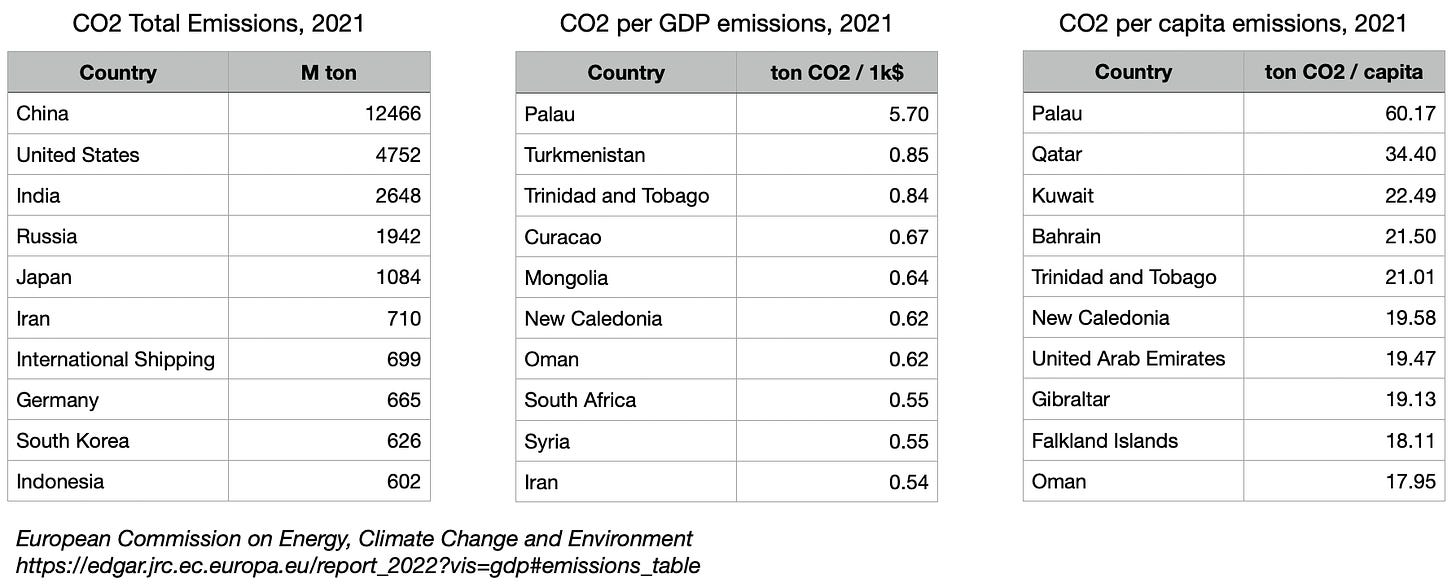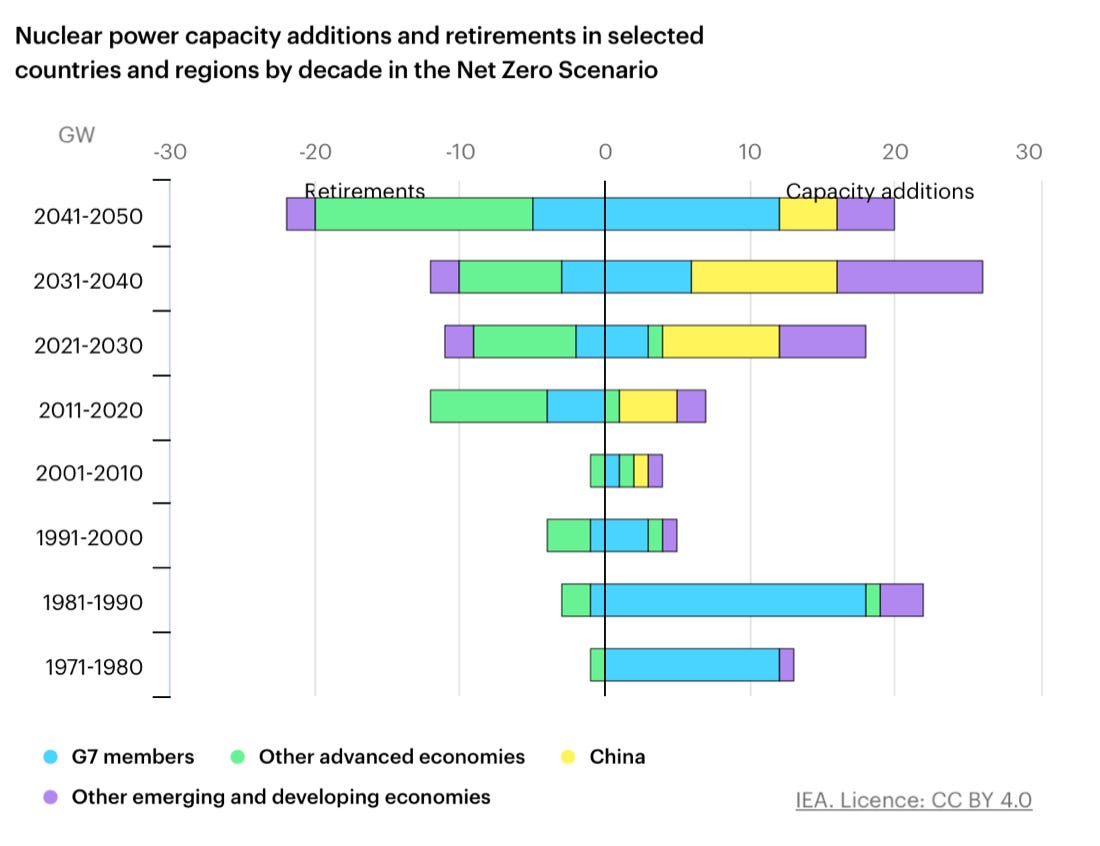
The Earth’s destiny hangs in the balance as the climate summit has begun. These are the most important takeaways from the summit so far.
According to McKinsey, most scientists agree that an increase of 1.5°C in earth surface temperature will put the earth on an irreversible trend of global warming and is very dangerous for humanity. If our current way of life is unchanged (the way we eat cattle’s meat and burn fossil fuels), the earth's surface temperature will increase by 3.5°C by 2050, and humanity will go to its inevitable demise.
That is why world leaders agree to set a pathway to keep temperature increases below 1.5°C. The UN's Climate Change Conference, usually called the Conference of the Parties (COP), is held every year to make sure all leaders agree on that pathway.
More Renewable Subsidies
This year, the 28th COP is being held in Dubai. World leaders, from King Charles to U.S. Vice President Kamala Harris, gave speeches on how to fight for the planet. As Harris said in front of the world leaders:
“Continued progress will not be possible without a fight... Around the world, there are those who seek to slow or stop our progress. Leaders who deny climate science, delay climate action, and spread misinformation. Corporations that greenwash their climate inaction and lobby for billions of dollars in fossil fuel subsidies.”
It is not clear what Harris intends to do. According to the International Renewable Energy Agency, subsidies for renewable energy in 2017 were $128 billion globally, or 20% of total energy subsidies. In other words, both renewable and fossil fuel energy enjoy billions of dollars in subsidies. Maybe she meant to discriminate against fossil fuels by stopping them from getting subsidies but encouraging renewable subsidies.
Nevertheless, during the Biden-Harris administration, the U.S. reached a record oil production of 13.2 million barrels per day, flooding the oil market while Saudi Arabia cut production.
Loss and Damage Fund Approved
The biggest breakthrough of this year’s Climate Conference is the agreement on a “loss and damage” fund. Rich nations and significant polluters will contribute money to a World Bank-managed fund, which will then distribute funds to underdeveloped nations suffering from the effects of climate change. Initial commitments amount to $700 million. Among the countries that have pledged are: Germany (the biggest, $109 million), the UAE (the COP host, $100 million), and the UK ($51 million).
So far, it is not clear who will receive the money or how to determine if a country is harmed by climate change.
But it seems not to be a problem for Germany, which is the biggest contributor to the loss and damage fund. Germany is the best example of both a developed country AND a big polluter. And they did so voluntarily. Germany has shut down all its nuclear power plants by April 2023 and is turning into coal and biomass power plants.
It remains to be seen if country leaders will continue to pledge to the fund. Determining the biggest polluter is easy. But as pollution is a by-product of economic growth and population growth, maybe it is wiser to find out who are the inefficient polluters. In other words, which countries have more pollution per unit of economic growth. Or which country have more pollution per capita.
Countries Pledge to Triple Nuclear Power
While Germany shut down all its nuclear power plants this year, the rest of the world pledged to triple nuclear power as an energy source. Among those who made pledges are the U.S., Japan, and the UAE.
The reasons? Nuclear energy is the second-largest source of clean dispatchable baseload power and is the key to keeping earth's temperature increase below 1.5°C.
We are not sure how they will do it, because nuclear power needs uranium, and uranium supply deficit is getting worse every year.
The COP President was Reprimanded for Disagreeing with Consensus
While most leaders talked about phasing out fossil fuels, Sultan Al Jaber, a UAE minister and the 28th COP President, shockingly gave an honest answer during a candid conversation with Mary Robinson, a former UN special envoy for climate change.
He said, “I accepted to come to this meeting to have a sober and mature conversation. I’m not in any way signing up for any discussion that is alarmist. There is no science out there, or no scenario out there, that says that the phase-out of fossil fuels is what’s going to achieve 1.5°C.”
Further, he elaborates, “Please help me; show me the roadmap for a phase-out of fossil fuels that will allow for sustainable socioeconomic development, unless you want to take the world back into caves.”
And no one helped him. Instead, he got massive blowback and was forced to hold an emergency press conference the following day, where he retracted his statement and admitted that phasing out fossil fuels is essential.
IPO — New Listing
GSIW 0.00%↑ Garden Stage Ltd, a holding company registered in the Cayman Islands, conducts all of its activities through its two fully-owned Operating Subsidiaries based in Hong Kong: I Win Securities, licensed for Type 1 (securities dealing) regulated activities under the SFO in Hong Kong; and I Win Asset Management, licensed for Type 4 (securities advising) and Type 9 (asset management) regulated activities under the SFO in Hong Kong.
AFJKU 0.00%↑ Aimei Health Technology Co., Ltd., a blank check company newly incorporated as a Cayman Islands exempted company. The company anticipates targeting what are traditionally known as “small cap” companies domiciled in North America, Europe and/or the Asia Pacific regions that are developing assets in the biopharmaceutical, medical technology/medical device, and diagnostics space.








